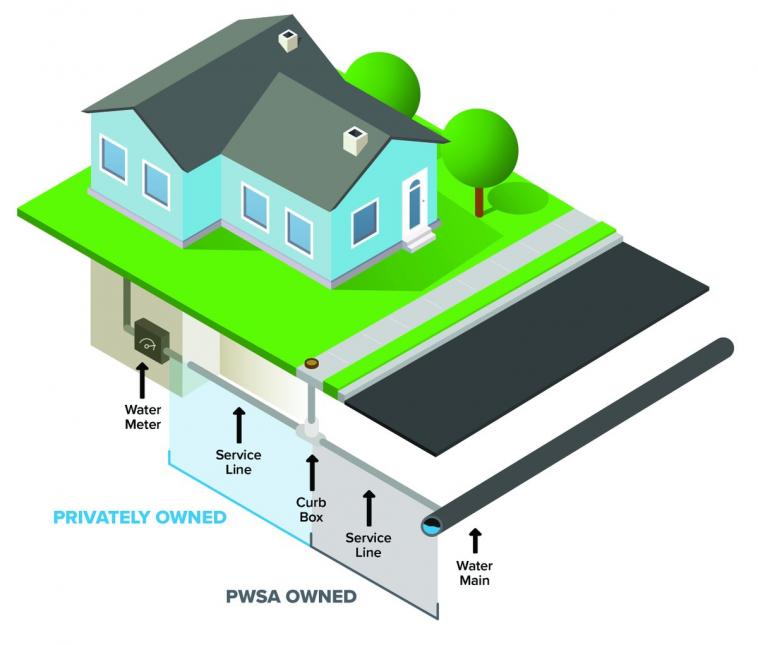As promised, this month we are discussing a single-family home tap permit, also known as a residential permit. A connection to the public water and sewer system is required when constructing a new house. Some U.S. cities have water departments that are a part of the building department. In Pittsburgh, PWSA is a distinct authority. Due to this distinction, a water and sewer connection permit is required separately from a building permit. A third permit from the Allegheny County Health Department (ACHD) is required before connecting your plumbing to PWSA’s public mains. Let’s break down what PWSA is looking at when reviewing this permit with hopes of demystifying the process.
Single-family homes are much less complicated and have less impact on our water supply and sewer collection than a larger development. We simply require less information when applying for this type of permit, which is why we can issue them over-the-counter. When an application is submitted, our engineering technicians make sure a public water main and sewer main are available for connection. Our entire public system is mapped digitally in a Geographic Information System (GIS). The techs print out the maps for the applicant and issue the permit after the fee is paid. How those connections to the public mains are made is what is of interest to PWSA. When the hired plumber is ready to make that connection, they call our Operations Division to witness and inspect the work. You now have water and wastewater service at your house!
 Graphic depicting which portions of a water service line are owned by PWSA and the property owner. PWSA owns from the curb box to the main and the homeowner owns from the curb box to the house.
Graphic depicting which portions of a water service line are owned by PWSA and the property owner. PWSA owns from the curb box to the main and the homeowner owns from the curb box to the house.
ACHD plumbing permits are issued for the water service line, sewer laterals, and any plumbing inside the house. All ACHD permit reviews and inspections are scheduled separately from PWSA. Still, they may occur on the same day, depending on the work scope and schedule.
The homeowner bears the costs associated with the construction and connection of the water service lines and sewer laterals to the public mains. After the connection is made, PWSA owns and maintains a portion of the water service line from the curb box (the shutoff valve) to the public main. PWSA also owns and maintains your water meter. Check out our graphics above and below to get a better grasp on how this works. Customers are responsible for the maintenance of the entirety of the sewer lateral. Proactively clearing roots and keeping obstructions away from your sewer line goes a long way in preventing costly repairs in the future.
Let’s end with some stats: 44 over-the-counter residential permits were issued in 2020. That is 12% of the total permits issued and 10% of over-the-counter permits.
Learn more at pgh2o.com/developers-contractors-vendors/permits/residential-permits.
 Graphic depicting which portions of the sewer lines are owned by PWSA and the property owner. The sewer lateral is owned by.the property owner from the property to the main. The sewer main in the street is owned by PWSA.
Graphic depicting which portions of the sewer lines are owned by PWSA and the property owner. The sewer lateral is owned by.the property owner from the property to the main. The sewer main in the street is owned by PWSA.


